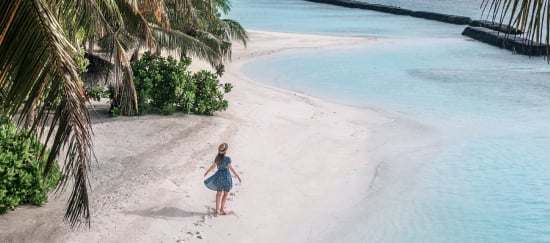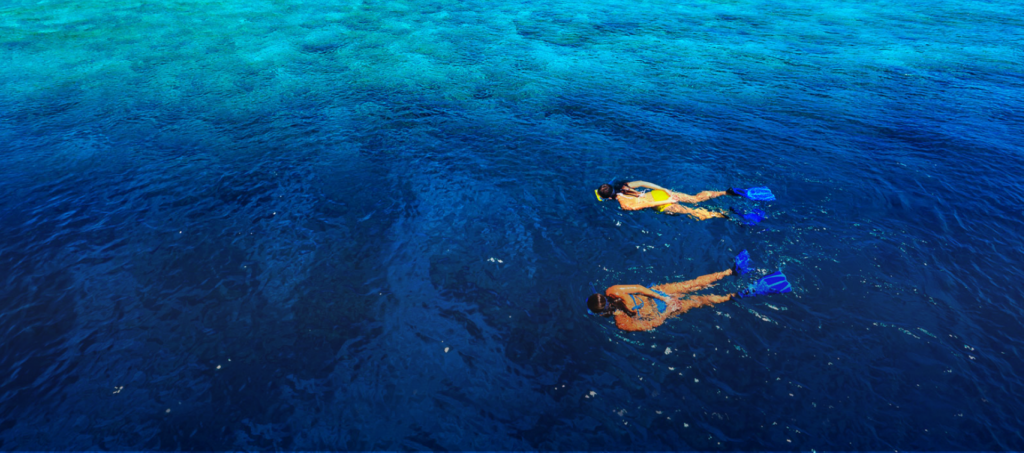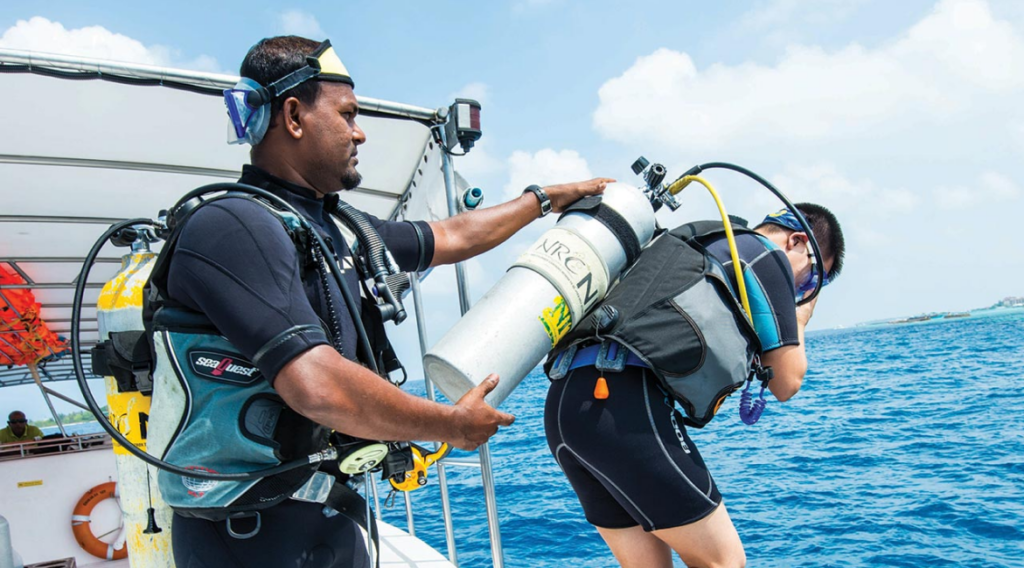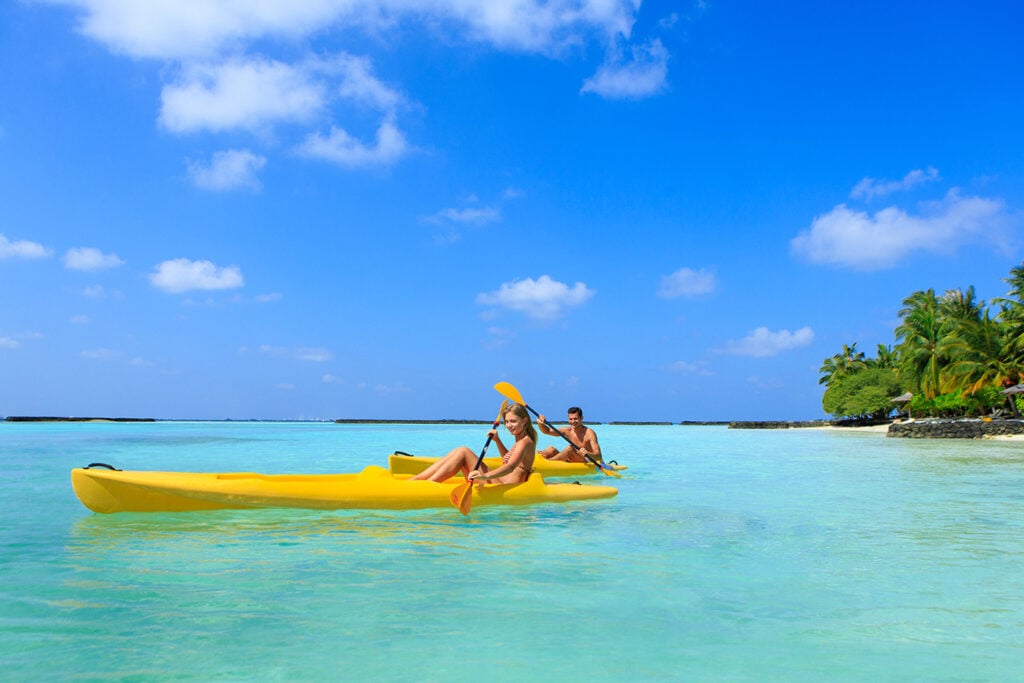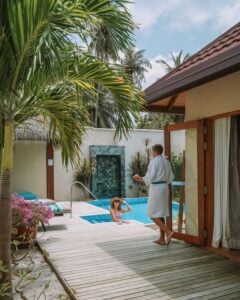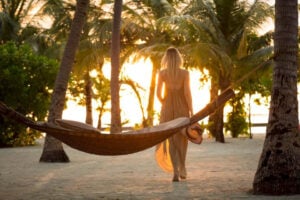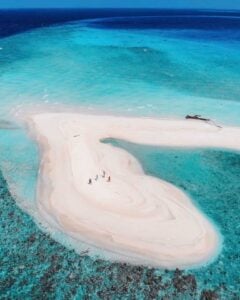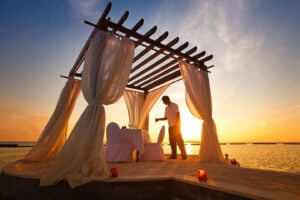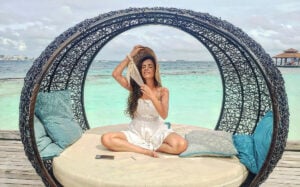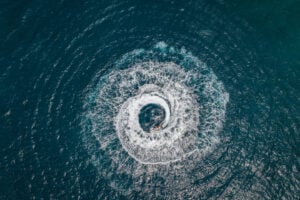Covering an area of 19.2 hectares (48 acres), Kurumba is one of the largest resort islands in the Maldives. For comparison, it’s slightly bigger than Tiananmen Square in Beijing but only a quarter of the size of Gorky Park in Moscow. New York’s massive Central Park is 18 times larger. In sports terms, you could fit 26 standard soccer fields on the island, or just over 700 tennis courts. Amazingly, this patch of paradise is usually home to about a thousand people, in addition to the two cats and numerous colourful lizards and birds that inhabit Kurumba’s vibrant tropical gardens
Running a luxury resort on a small island presents many challenges, not least of which is the supply of water and electricity, as well as efficient waste disposal through recycling and transformation. Kurumba is a leader among Maldivian resorts in its use of green technology to protect the environment on and around the island. Take our fascinating Back of the House tour to learn more about how we do it.
Water Desalination
Our idyllic island requires fresh water for drinking, bathing, laundry and cooking, not to mention the swimming pool. All our water is produced in our three desalination plants. Pure seawater is drawn from the deep sea through two pipelines attached to a platform on the sunset side of the island. Two 800,000-litre storage tanks provide a backup, and the island also has a 150-metre deep borehole that supplies seawater when needed. Also treated with a UV process, the desalinated water that comes from the taps in the villas is perfectly drinkable, and samples are regularly taken to labs in Malé for analysis.
Electricity Generation
Lights and televisions use relatively little energy compared to the air conditioning units – the main consumers of electricity at the resort. Kurumba has six large generators that produce a combined 18 megawatts of electricity a day, using 5,000 litres of diesel fuel in the process. To reduce noise pollution, the generators are housed in an especially soundproofed building. You can help reduce power usage by keeping your doors closed when using the air conditioning and by removing your keycard from the switch at the entrance of your villa when you go out. That will automatically switch off all the electric appliances.
Solar Water Heaters
Lights and televisions use relatively little energy compared to the air conditioning units – the main consumers of electricity at the resort. Kurumba has six large generators that produce a combined 18 megawatts of electricity a day, using 5,000 litres of diesel fuel in the process. To reduce noise pollution, the generators are housed in an especially soundproofed building. You can help reduce power usage by keeping your doors closed when using the air conditioning and by removing your keycard from the switch at the entrance of your villa when you go out. That will automatically switch off all the electric appliances.
Energy efficient solar water heaters provide hot water to all the villas and staff quarters. The water is heated directly by the sun’s rays through glass panels. The heating process causes the water to rise, automatically circulating it through a 300-litre storage tank. As long as the sun keeps shining, the system will provide a reliable source of hot water without electricity. The system also has an in-tank electric element to keep the water warm during cloudy weather or at night. The advantage of this simple system is that it will function perfectly and efficiently for many years with little or no maintenance
Herb & Vegetable Garden
he resort’s restaurants supplement their vegetable stock for salads and herbs with the fresh organic produce from the gardens located in the centre of the island. The harvest includes chillies, basil, mint and oregano. A coconut oil processing machine produces high-quality refined oil from the nuts collected in our gardens. It is used as a base oil for our traditional spa treatments and for some cooking purposes.
Coral Gardening
Sea barriers ring the resort to control beach erosion. They also provide easy access to the drop-off into deeper water, which is great for snorkelling. Made up of old dead coral, the sea walls are very long lasting, but they need occasional repair as they can be damaged by wave action. Guests are invited to help the coral regenerate by participating in the coral gardening activity, which encourages new growth on specially made frames that hold the coral branches
Laundry
Every day, our hard working laundry staff washes and irons over 3000 items, including up to 400 bath towels, 600 hand towels, 500 bed sheets and 1000 pillowcases. If guests do not need their sheets changed every day, they are asked to leave the fluffy dolphin found in their room on the bed as a message to the room attendants. To further save energy, the ironing press was recently upgraded to run on steam instead of electricity
Waste Water
All wastewater from the bathrooms, kitchens and laundry is directed to the Sewage Treatment Plant, where it is purified naturally and then used to supplement the water used in the gardens. Absolutely no impure water reaches the pristine seas around the island
Organic Waste
In the super compositor machine, wet kitchen waste is mixed with the sawdust from the carpentry shop and dry leaves from the garden. The machine reduces the moisture content to allow bacteria to activate, mimicking nature’s recycling system. After a month or so, the compost matures into a dark, crumbly nutrient-rich soil. Kurumba produces up to 800kgs of compost a day, which is shared freely with gardeners on local islands. The husks of coconuts collected from the resort’s gardens are shredded into dust, and fibres and spread as a mulch on top of the soil to help retain moisture and improve fertility.
Inorganic Waste
The Recycling Centre collects and transforms the inorganic wastes, like plastic, metals, glass and foam boxes, that accumulate at the resort. Tin cans and metal scraps are compressed, and up to a thousand plastic bottles are shredded every day before they are sold to companies that export waste to India for recycling. More than 100 kilos of glass bottles and jars are crushed per day by a machine to produce fragments. These are later mixed with cement as an aggregate material to make it stronger and then used for any construction and repair work needed around the resort
Pest Control
The Maldives is blissfully free of most pests. But as mosquitoes can be a nuisance during the wet season, we use a misting machine to chase them away from the gardens and the villas. Due to its low toxicity and strong safety profile, the insect repellent we use is approved by the World Health Organization for use in kitchens and residential areas.
